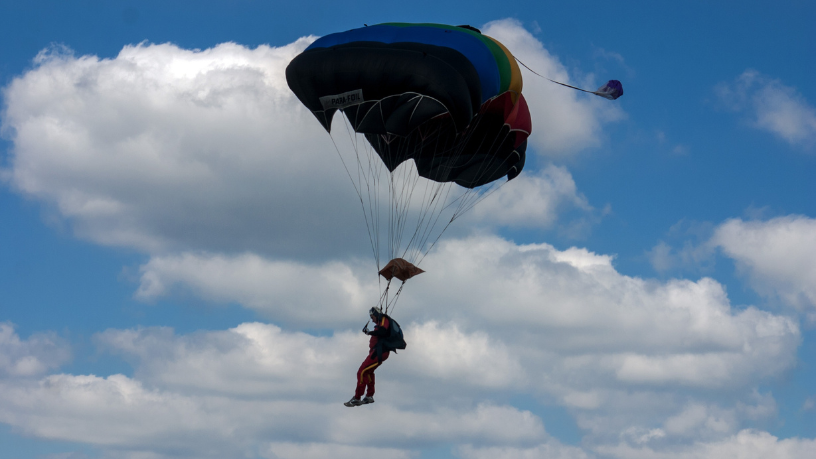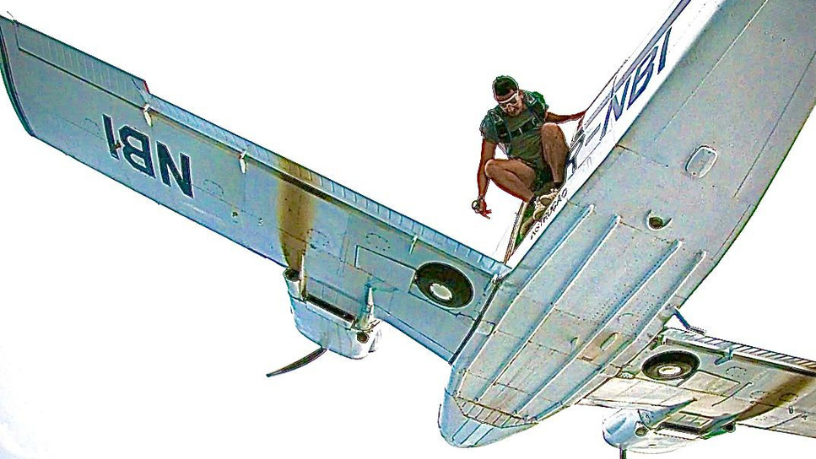For expert Paulo Cabral Bastos, skydiving is one of the most thrilling and challenging activities, but it is also well known for provoking fear in many people. The adrenaline rush and the anticipation of jumping from an airplane thousands of meters above the ground can trigger intense emotions. For skydivers, overcoming fear is not just a matter of courage—it involves psychological strategies that help control anxiety and enhance the experience.
In this article, we will explore how skydivers manage fear and the psychology behind every jump.
How Does Fear Affect Skydivers Before the Jump?
Before a jump, fear can manifest in various ways, from mild nervousness to extreme anxiety. This emotional response is natural, as the body reacts to the unknown and perceived danger. The key to controlling these feelings lies in training and mental preparation. Beginner skydivers, in particular, are guided to visualize the jump in advance, mentally rehearsing each step of the process. This technique helps reduce tension and fear of the unexpected.
Additionally, as Paulo Cabral Bastos highlights, breathing techniques and meditation are commonly used to regulate heart rate and calm the mind before the jump. By focusing on their breathing and learning to control their thoughts, skydivers can significantly reduce anxiety levels. Psychological training, combined with repeated exposure to the activity, helps build confidence and emotionally prepares individuals for the moment of the jump.
How Is Fear Managed During the Jump?
During the jump, fear can intensify due to wind speed, the sensation of free fall, and the unfamiliar environment. However, many skydivers report a shift in perception once they leave the aircraft, as the release of endorphins and adrenaline creates a feeling of euphoria and freedom.
To face this moment, the skydiver must be fully focused on the necessary actions, such as deploying the parachute and maintaining proper body control. The ability to stay present and trust the training process plays a crucial role in managing fear and ensuring a safe and exhilarating experience.

According to enthusiast Paulo Cabral Bastos, consistent practice also plays a fundamental role in reducing fear during the jump. The more a skydiver exposes themselves to the experience, the better they learn to recognize their own limits and respond to fear in a productive way. The confidence gained over time and through repetition is essential in transforming fear into something manageable and even enjoyable.
How Does Post-Jump Psychology Help in Controlling Fear?
After the jump, many skydivers experience a sense of victory and control over their fears. This feeling is crucial for psychological growth, as it reinforces the idea that fear can be overcome through practice and self-confidence. A post-jump review, where skydivers analyze what happened during the experience, helps strengthen the perception of safety and reduces fear in future jumps. Sharing experiences with other skydivers creates an emotional support network, which can be highly beneficial.
Post-jump psychology also involves reflecting on one’s ability to face challenges and fears. As Paulo Cabral Bastos emphasizes, by consciously processing emotions and reflecting on lessons learned from each jump, skydivers strengthen their emotional resilience. Over time, fear diminishes, and the experience becomes a motivational drive to continue jumping and exploring personal limits—both physically and mentally.
Ultimately, handling fear in skydiving is about much more than courage—it is a combination of psychological preparation, focus, and self-awareness. According to expert Paulo Cabral Bastos, over time, the jump transitions from being just an adrenaline rush to an opportunity for personal growth and overcoming fears. Thus, skydiving challenges not only the body but also the mind, creating a unique connection between fear and achievement.







